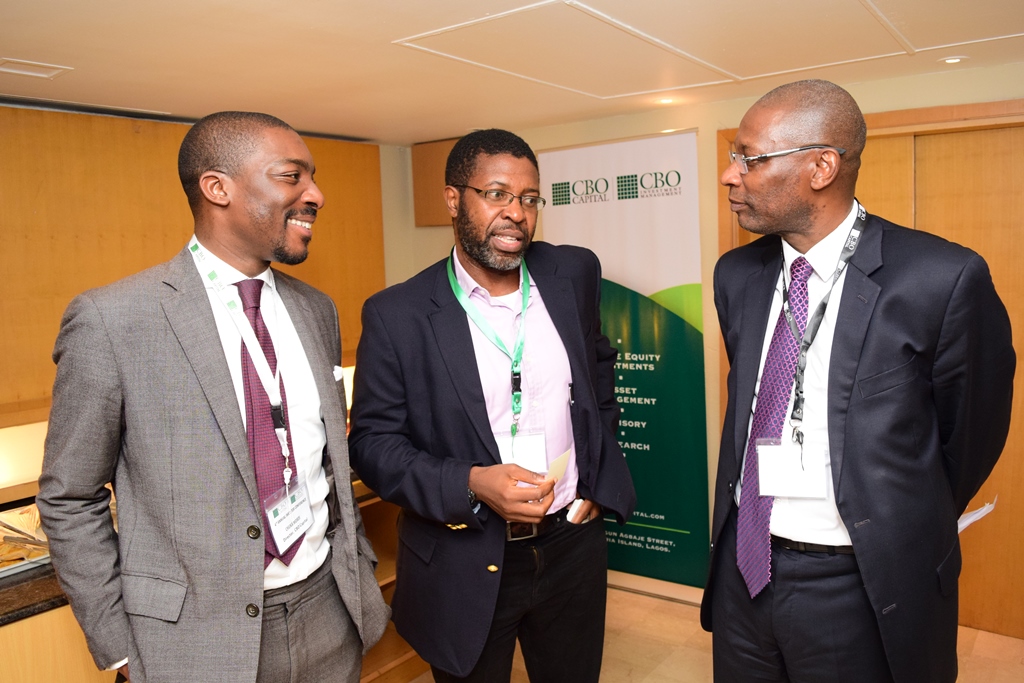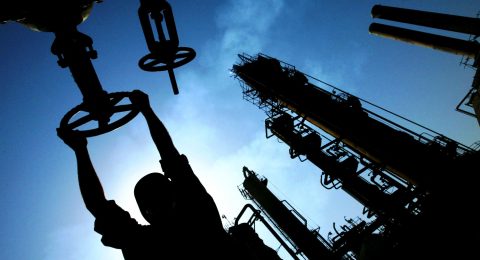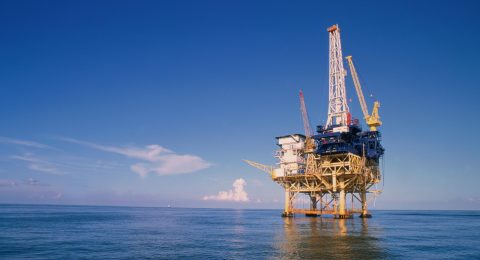The Asset Management Corp. of Nigeria said it has recovered 57 percent of the bad debts it took on five years ago to rescue banks in Africa’s largest economy from collapse.
“We’re a little bit behind, but not too far behind, what we expected,” Chief Executive Officer Mustafa Chike-Obi said in an interview in Lagos. “The courts are a constraining factor. As much as we want to carry a hammer, we still have to go through the court system and remain an institution that obeys the laws. That takes time.”
The state-owned agency, known as Amcon, managed to collect or reorganize the debt it bought at a rate of 1.07 times for what it paid for them, above its 80 percent target, he said. Modeled on organizations including Ireland’s National Asset Management Agency Ltd. and Korea Asset Management Corp., Amcon used bonds to bail out 10 lenders and buy more than 12,000 loans from industries including aviation, gasoline marketing and manufacturing for about 1.8 trillion naira ($9 billion).
A clean up of the industry means Nigerian banks are better able to withstand shocks even as non-performing loans rise following the latest oil slump, Chike-Obi said. It is unlikely that lenders will be offered another bailout, he said.
“If the central bank, whose decision it is mostly, did ask us, we’d have to think very seriously about it,” he said this month. “But there’s not much appetite from the central bank, Amcon or the nation for this. Nobody wants it.”
Sour Loans
While non-performing loans stood at 2.9 percent at the end of December, they are rising, the central bank of Africa’s biggest oil producer said in April. The ratio will climb will to between 5 percent and 10 percent by the end of 2015, Fitch Ratings said last year.
Brent crude’s 40 percent drop since June is making it harder for oil companies, which account for about a fifth of lending in Nigeria, to repay loans, Fitch said. Local companies are also battling to pay for imports and service foreign-currency debt after the naira’s 18 percent depreciation against the dollar in the last 12 months. Dollar-denominated loans made up 45 percent of the total in Nigeria last year, according to Exotix Partners LLP.
Chike-Obi, a former Goldman Sachs Group Inc. mortgage-backed bond trader, also wants to sell the last of Amcon’s bank holdings. It owns Keystone Bank Ltd. and has stakes in Unity Bank Plc and Wema Bank Plc.
Over-Regulation
Keystone, the biggest of three banks nationalized after the 2009 crisis, will probably be sold this year, he said. Amcon’s shares in Unity and Wema will be disposed of “as soon as is practical,” Chike-Obi said.
Shares in Wema, which has a market capitalization equal to about $190 million, fell 2 percent over the past year to 0.96 naira as of May 22. Unity, valued at $139 million, retreated 53 percent to 2.36 naira.
Based on the experience of selling Mainstreet Bank Ltd. and Enterprise Bank Ltd. last year to domestic investors, interest in the new offerings could be high, Chike-Obi said.
“The prices we got were much higher than we expected,” he said. “There was a lot of international interest in both banks. In the end, the local banks were the highest bidders.”
While banks are now better-managed and more adept at gauging loan risks, they are “running into danger of over-regulation,” said Chike-Obi, without being specific.
The central bank increased the cash-reserve requirement for private-sector deposits to 31 percent from 20 percent on May 19, meaning lenders have to park almost one-third of such funds with the regulator while getting paid no interest.
‘Perfect Balance’
A levy that sees banks pay 0.5 percent of their assets annually to help fund Amcon won’t be eliminated or reduced until the agency is wound down, Chike-Obi said. That may be by 2023, when 3.8 trillion naira of Amcon bonds held by the central bank mature.
“The benefit of the levy, even it’s considered too high, is that Amcon ends sooner,” he said. “It’s the perfect balance at this time.”
The agency’s priority now is recovering the remaining bad loans it bought.
“No one should expect magic,” Chike-Obi said. “We expected it to be difficult and it remains difficult.”
Source: Bloomberg












